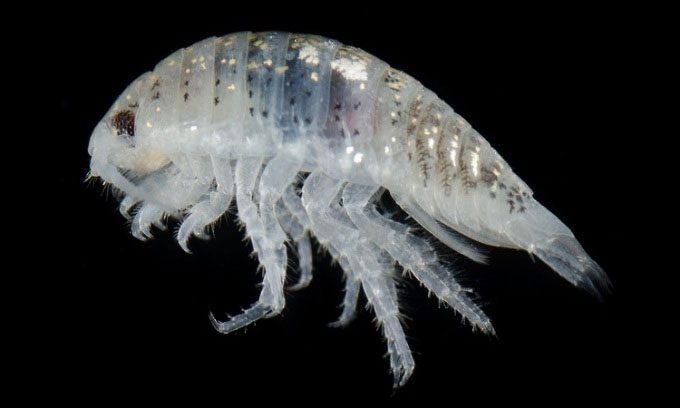Beachgoers in Southern California are becoming targets of aggressive little sea bugs nicknamed “mini sharks.”
These shrimp-like creatures are known for biting the ankles of locals strolling along the shore, causing them to leap in pain, Live Science reported on September 1. Experts have identified the culprit as the isopod Excirolana chiltoni, a relatively common crustacean that measures about 0.8 cm and can swarm in groups of over 1,000, according to Walla Walla University in Washington. Their bites are quite painful and can draw blood from the victim’s feet, but they are not a cause for serious concern.

Isopod Excirolana chiltoni causing foot bleeding. (Photo: Hakai Institute)
On August 28, CBS8 San Diego reported multiple bite incidents on beaches near San Diego. Local resident Tara Sauvage, who was bitten by the isopod at De Anza Cove in the Mission Bay area, described the sudden injury as extremely painful. “Blood was all over my foot and between my toes as if little piranhas were biting me,” Sauvage said. After rinsing her foot, the pain subsided within 15 to 20 minutes.
Isopods vary in size from tiny species like E. chiltoni to monstrous creatures measuring 26 cm that roam the ocean floor. E. chiltoni inhabits the coastal regions of California and the Pacific Northwest of the United States and Canada. Locals can be bitten anywhere these creatures congregate, though such occurrences are quite rare.
For instance, in 1993, the population of E. chiltoni surged near Newport Beach, California, leading to an increase in bite cases, including that of a 2-year-old girl. However, researchers are still unclear about what triggers the sudden rise in E. chiltoni numbers.
Isopods spend most of their time burrowing under the sand along the beach and often emerge in shallow waters during low tide. When dead fish or large stranded animals are present, they quickly clean up the flesh with their sharp jaws.
The isopods’ rapid scavenging ability poses various problems for fish farming operations. They also make it difficult for experts to identify the bodies of drowning victims, according to Victoria University. The bite of an isopod can cause bleeding and pain for several hours, but the wounds are generally shallow and do not result in lasting damage. However, large swarms of isopods can sometimes pose greater risks.





















































